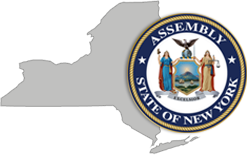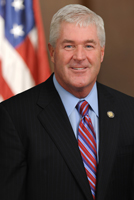Assembly Minority Conference Proposes Measures To Improve Voting Procedures, Save Taxpayers Money
The Assembly Minority Conference today presented proposals to help improve access to voting and relieve the financial obligations placed on localities. The proposals, which were rejected by members of the Majority Conference, would save taxpayer dollars and streamline voting reforms and logistics. Minority Leader Brian M. Kolb (R,C-Canandaigua) criticized the Assembly Majority’s decision to block these bills.
“On the first day of legislative activity in 2019, the Majority Conference went back to its old habits – passing legislation that costs localities money and drives up property taxes, without providing any financial assistance from the state,” Leader Kolb said. “There are common-sense reforms that can improve election processes. But they can’t come with a steep price tag and they cannot open the door to potential fraud.”
While considering a package of election reforms on Monday, the Assembly Minority Conference introduced amendments that would:
- Require the state to pay for any costs associated with the implementation of early voting and moving the date of the state primary;
- Allow all New Yorkers to cast an early vote by absentee ballot, rather than implementing a costly and complicated early-voting program, which presents several logistical challenges for local Boards of Elections; and
- Change the effective date of a consolidated primary to January 1, 2020, since there is no federal primary election in 2019.
The Assembly Majority voted against each proposal.
“New York State’s historically low Election Day turnouts have more to do with apathy than access,” Leader Kolb said. “Voters stay home when state officials are sent to prison, when the biggest government decisions are made behind closed doors, when their trust is repeatedly betrayed, and when those who benefit from a broken system refuse to take action. Changing election procedures and protocols won’t make a difference if Albany continues to operate in a manner that rejects the public’s input and insight.”

